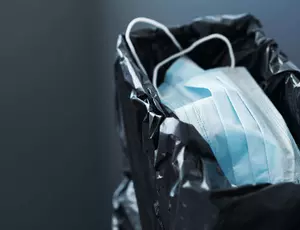It's easy to think of all hospital waste as infectious, but improving segregation of waste can help trusts be more sustainable as well as reducing costs.
Understanding your waste
For busy hospitals, it is often seen as easier or more convenient to dispose of multiple waste streams in the same containers. There may be a lack of understanding as to what different waste streams actually consist of, or the belief may be held that all hospital waste gets incinerated anyway. Yet while convenience is prioritised and waste segregation is not properly considered, your hospital's waste could be creating extra expense, as well as having a damaging effect on your progress towards your sustainability goals.
The benefits of segregation
Total waste costs for the NHS stand at over £11 billion a year. Improving waste segregation is a crucial step towards reducing this number, as well as reducing the carbon footprint of the healthcare sector. Segregating different waste streams means that they can each be treated differently, in the most sustainable manner. For example, orange bag waste is infectious and needs to be treated as such, as it falls under the EWC waste code 18 01 03. This includes waste which is infectious, but not medicinally or chemically contaminated.
Ensuring that general waste is kept separate from any clinical or offensive waste helps to keep costs low by preventing contamination. Efficient segmentation of waste also helps to keep staff safe; by disposing of sharps separately, for example, you are removing the risk that they will contaminate other waste streams and act as a health risk. Staff education is then needed to ensure that all employees understand, and are committed to, the benefits of waste segregation.
How can Veolia help?
We can work with trusts on a bespoke basis to audit your waste streams and find ways to improve segregation. This will help to minimise contamination and enable us to develop the most sustainable treatment routes for each waste stream. This includes diverting waste from landfill, recycling materials where possible, and only using high-temperature incineration when absolutely necessary. We can also work with you to create resources for educating staff and offer flexibility in terms of the containers we can provide, including compactors.
Once we have identified ways to make your waste management more sustainable and cost-effective, we can utilise our infrastructure of vehicles and facilities to treat your waste. Many of our facilities are permitted to take offensive and clinical waste, meaning that you don't have to rely on third-party companies to treat your waste - you can rely on one supplier for collection, transportation, and treatment. This offers the additional benefit of taking away worries about capacity: as we are not reliant on an outside company's facilities, you don't need to worry about us letting you down by not collecting your waste. We offer reliability and peace of mind, as well as waste management expertise that will save you money and help you to be more sustainable.



